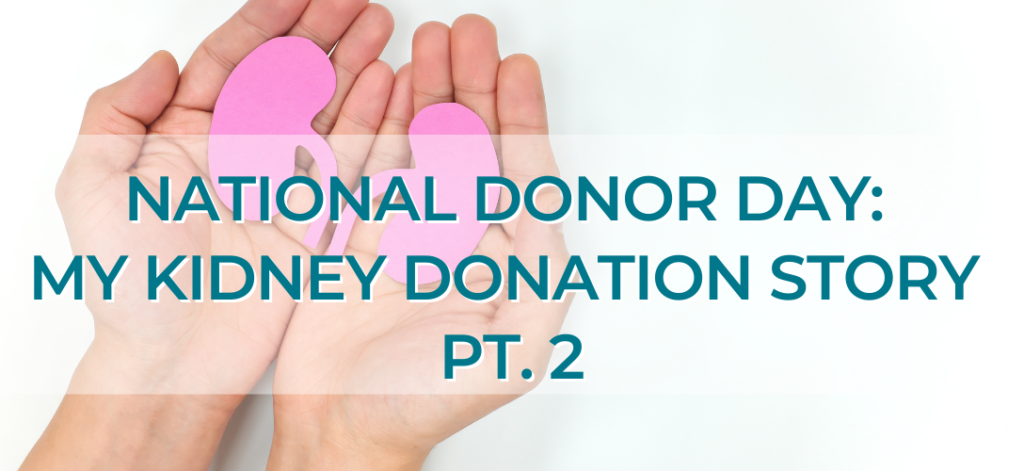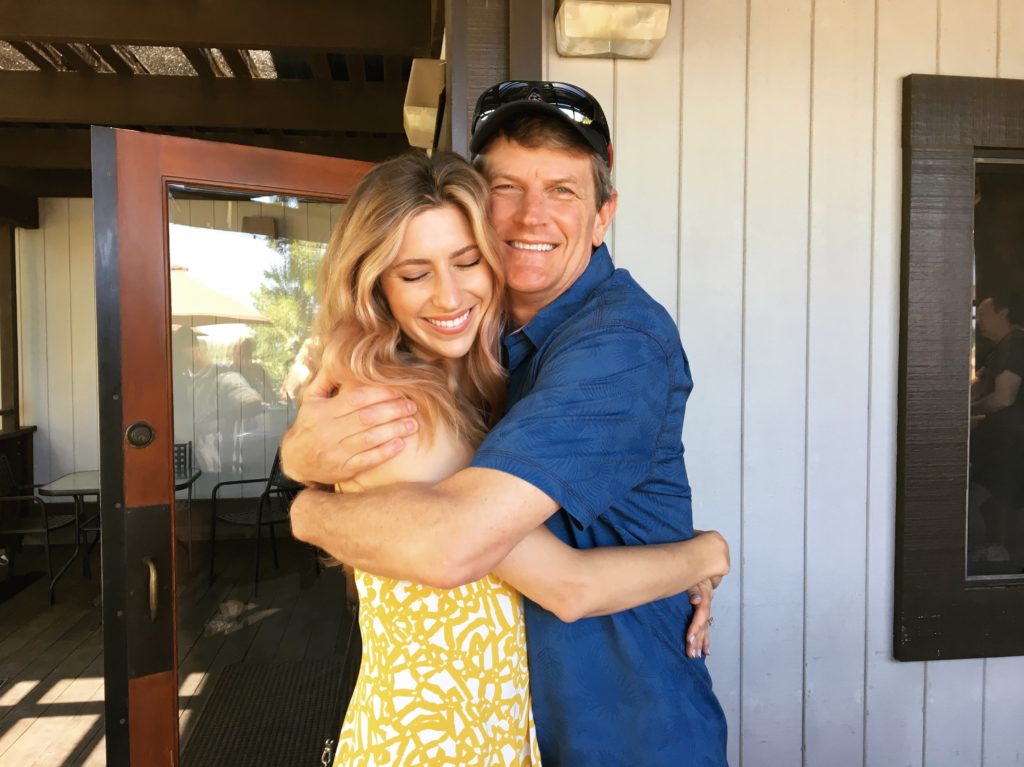
Published on February 12, 2021 | Observed every February 14th, National Donor Day is dedicated to spreading awareness and education about organ, eye, and tissue donation. In honor of National Donor Day, we’re sharing stories from two kidney donors. Recounting his kidney donation journey, Rick Adams shares what it was like becoming a kidney donor to his daughter.
PKDF: How did you become involved with the PKD Foundation?
Rick: My daughter Elizabeth was initially diagnosed in 1993 with ARPKD at the age of two. In our journey to educate ourselves on everything concerning PKD, we learned of the PKD Foundation. The resources, information, and support provided by the PKD Foundation were exactly what we needed. They provided us with the support to make knowledgeable decisions concerning the health and care of our daughter. We now had a personal stake in finding a cure for PKD.
We wanted to do more to support the PKD Foundation and knew the best way was through fundraising. For several years, we hosted a “Bike-a-Thon” fundraiser. My wife, Julia, eventually took on the volunteer position of coordinator of our local PKD Chapter in Sacramento. It was through the local chapter that we met an amazing group of people afflicted with PKD and who were advocates for finding a cure. This led to the establishment of a committee to start the “Corks for a Cure” fundraiser we throw every year. Over the past five years, we’ve raised close to $200,000.
PKDF: What made you become a kidney donor?
Rick: Over time, it became apparent that Elizabeth didn’t have the rarer ARPKD, but instead, had a spontaneous mutation form of PKD. Initially, Elizabeth’s PKD diagnosis had little impact on our day-to-day lives. It wasn’t until she was in her early 20’s that she started experiencing side effects from PKD, including lethargy, burst cysts, blood in her urine, side pain, and infections.
By the time Elizabeth was 23, she was in end-stage renal failure. Our eldest daughter, Berkeley, and I were proactively tested to determine if we were a good match for donation. Fortunately, we both were deemed to be suitable donors and it was decided that I would donate first.

Rick and Elizabeth
PKDF: What was the kidney donation process like?
Rick: When Elizabeth’s renal numbers dropped, we knew she would inevitably need a kidney transplant. I intuitively knew I would be a donor match and had prepared for the moment. Beyond the antigen match, which determined I was a suitable donor, I went through a series of noninvasive tests, including blood draws, a heart screening, and various scans. One pleasant surprise was how well the hospital and staff treat donors. I was treated like a king!
As Elizabeth’s renal numbers continued to decline, the doctors informed us the transplant was inevitable and asked us to pick a date. The night before the transplant we celebrated as a family. The day of the transplant, July 15, 2014, was a mixture of emotions. Our family was excited, scared, hopeful, and anxious. I slept well the night before and awoke surprisingly calm and confident we’d made the right decision.
The day of the kidney donation
The prep for surgery was painless and the next thing I recall was waking up in a recovery room. I spent a total of two days in the hospital, and they took extraordinary care of me. I’m sure many people are curious about the pain associated with the surgery. The medical team did a great job with pain management while I was in the hospital, and they sent me home with a prescription for a strong pain reliever, which I never filled.
Although I can’t speak for all donors, my pain was minimal. I didn’t have to take any pain medications during my at-home recovery. The feeling was more one of being uncomfortable for a few days rather than pain.
Within 10 days of donating my kidney, I was riding my bicycle 10 miles. I felt great. We’re now approaching our seven-year “kidneyversary” and I’ve never felt better. Donating a kidney has had no long-term impact on my health or held me back from doing whatever I want.
PKDF: What did you learn from being a kidney donor?
Rick: Although kidney donation has had no long-term impact on my health, it’s impacted my life in other positive ways. First, the impact on my daughter Elizabeth was immediate and astounding! She got her life back. She is leading a “normal” life, full of energy, optimism, and love. In Elizabeth’s case, she had numerous years of slow renal decline prior to transplantation. The lethargy and mental/emotional burden that comes with a decline in kidney function are slow and insidious. It’s only after Elizabeth received a new kidney that we understood how bad things had been and how glorious full kidney function is.
I’m 60 years old now and have had a lifetime of experiences, achievements, and success, but nothing compares to donating a kidney! Donating a kidney was singularly the greatest decision and moment of my life. To dramatically and emphatically change someone’s life…is there anything greater than that? We celebrate July 15, our “kidneyversary,” every year as if it was a birthday, which essentially it is since her life was reborn.
PKDF: Do you have any words of encouragement for those considering kidney donation?
Rick: You may not be able to change the world, but you can change someone’s world.









0 Comments
Trackbacks/Pingbacks